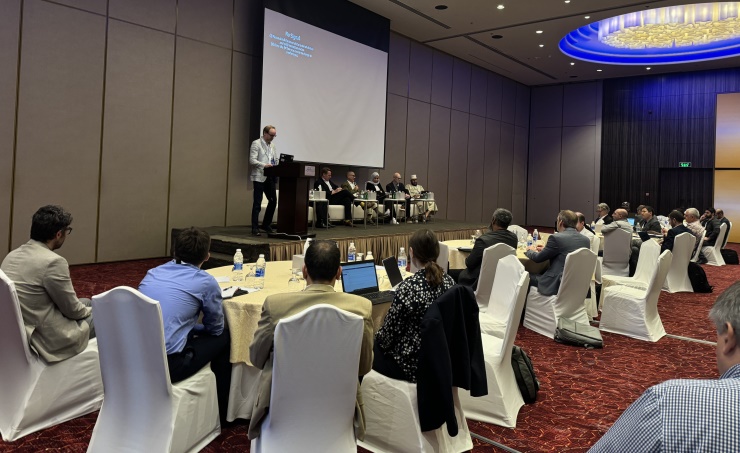2-day workshop series held at 9th SDMX Global Conference in Bahrain

Manama, Nov. 2 (BNA): Beginner and Advanced Capacity Building workshops were held as part of the 9th Statistical Data and Metadata Exchange (SDMX) Global Conference, organised by the Information and eGovernment Authority (iGA) in collaboration with 10 international organisations.
Over the course of two days, the workshops introduced participants to the fundamentals of SDMX, providing hands-on guidance. The primary objective was to help attendees understand the core concepts of SDMX and equip them with the skills they need to design, model, and disseminate statistical data tables.
Participants in the beginner track learned valuable SDMX skills such as data modeling and how to create a complete data structure definition (DSD), allowing them to model and disseminate a statistical data table by the end of their training. Those who registered for the advanced track were given an overview of micro data standards and hands-on training on how to reconcile it with macro data, ensure consistency across different datasets, and make data sharing more efficient with SDMX.
The workshops also offered a well-rounded experience for all participants, giving them the opportunity to engage in practical, hands-on exercises that reinforced their understanding of SDMX principles. The interactive nature of the workshops encouraged active participation and problem-solving, ensuring that attendees not only grasped the theoretical concepts but also gained proficiency in applying them.
Throughout the sessions, guidance was provided by renowned experts such as Luca Gramaglia from Eurostat, Abdulla Gozalov from United Nations Statistics Division (UNSD), Brian Buffett from Bank for International Settlement (BIS), David Barraclough and Yavuz Coban from the Organization for Economic Co-operation and Development (OECD), and Edgardo Greising from the International Labour Organization (ILO).
The 9th SDMX Global Conference, themed Empowering Data Communities, successfully wrapped up after three days of enriching discussions. Reiterating the pivotal role of SDMX) in contemporary data frameworks in official statistics and beyond, the conference explored its global uptake and evolution, spotlighting its integration within the statistical value chain.
With representatives from 107 countries, including SDMX specialists, users, and software vendors, the emphasis on worldwide collaboration and partnership was evident. A notable focus was placed on SDMX innovations, particularly the incorporation of artificial intelligence (AI) to enhance data accessibility and user experience.
Some of the key takeaways include that there's a compelling need to intensify SDMX tooling and capacity-building, enabling institutions at all levels to harness the potential of SDMX effectively. Merging SDMX with emergent technologies like AI and big data analytics is poised to unlock important new capabilities and insights for decision-makers, statisticians and data consumers in general.
Moreover, emphasis should be on constant innovation in SDMX-based data dissemination and visualization techniques, making data more accessible, comprehensible, and actionable for stakeholders. Intensified user feedback loops and continuous improvement practices are needed to ensure that SDMX standards evolve in tandem with the dynamic needs of the global data community. Lastly, advocacy and outreach are crucial. By raising awareness and showcasing tangible benefits, the SDMX community can drive the adoption of SDMX across sectors, ensuring robust, reliable and high-quality data in official statistics and other data domains.





